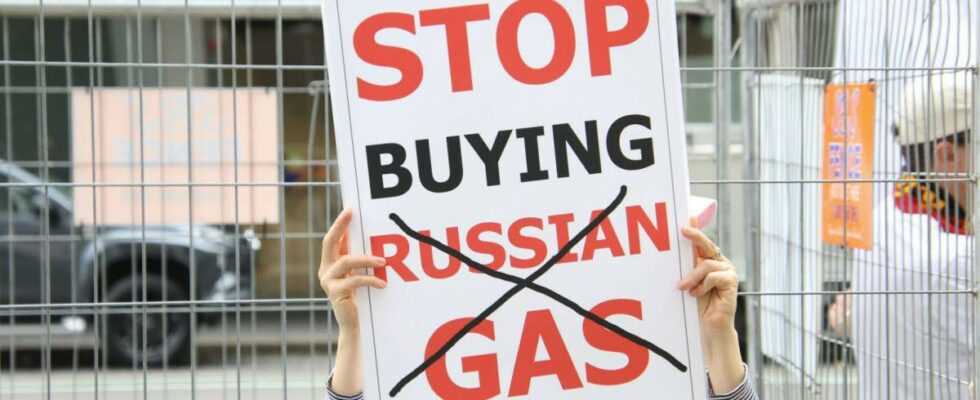Despite the thousands of deaths and the strong suspicions of war crimes hanging over the Russian army, the countries that denounce the invasion of Ukraine have contributed greatly to financing it in recent weeks. In any case, this is shown by the report by the think tank Center for Research on Energy and Clean Air (CREA) published on Thursday, which tracks Russian oil, gas and coal exports by pipelines and ships.
According to his data, Russia has exported no less than 63 billion euros of fossil fuels since the start of the war. An astronomical sum, linked to “the combination of the continuity of oil and gas imports and the increase in energy prices” in recent months, notes the CREA.
The EU bought 44 billion euros of gas, oil and coal
The European Union, whose leaders have multiplied visits to Volodymyr Zelensky, sent arms to Ukraine and assured the country of their support, is the first concerned by these purchases of fossil fuels.
In the past two months, its members have been responsible for 71% of the payments made to Vladimir Putin for the import of gas above all, but also of oil and its derivatives, or of coal. Specifically, since the start of the invasion, the EU has bought 44 billion euros worth of fossil fuels from Russia, the CREA has calculated.
For good reason: as a whole, the countries of the European Union are highly dependent on Russian gas (48%) and oil (25%).
And this European dependence on Russian gas poses a problem. Germany, 65% of whose gas imports come from Russia, was the world’s leading importer of this resource during the first two months of the war, for a total of 9.1 billion euros paid to Vladimir Putin.
Next come Italy (6.9 billion), China (6.7 billion), the Netherlands (5.6 billion) and Turkey (4.1 billion). As for France, it comes in sixth position among the countries that have paid the most money to Russia for its gas and oil, for a total of 3.8 billion euros since the beginning of the Russian invasion, as we observe it on the graph below.
European funding denounced by the CREA, which notes that “fossil fuel exports are a key element of the funding of the brutal military aggression against Ukraine”. In the eyes of Kostiantyn Krynytskyi, of the Ukrainian NGO Ecoaction, “this report clearly shows who continues to finance this war”.
Every drop of oil bought and sent by Russia is a drop of Ukrainian blood, and every bit of coal is an additional bullet fired at Ukrainians.
In its report, the CREA thus asks the Member States to “stop the purchases of Russian fossil energies” and to “replace them with renewable energies”. “During the transition period or if a complete ban is not possible”, “we must introduce minimum tariffs on Russian energies to encourage buyers to find other suppliers”, estimates the think tank.
Declining imports despite everything
Despite the astronomical sums paid to Vladimir Putin’s country since he invaded Ukraine, imports of fossil fuels from Russia are beginning to decline. And this “even in the absence of an embargo”, notes the CREA.
Russian oil deliveries abroad fell by 20% during the first three weeks of April compared to January and February. Within the European Union, oil and coal imports have fallen by 20% and 40%.
The recent suspension of deliveries to Bulgaria and Poland, which are highly dependent on Russian gas, should also contribute to fueling this decrease in the coming weeks.
“The data show that Russia is struggling to redirect cargo ships that are not bought by Europeans,” explains CREA, adding that Russia’s fossil fuel exports to unusual destinations (Egypt, India…) have increased. “But they are not sufficient to compensate for the falls in imports from Europe”.
Still no import ban
Even if the European Union is trying to diversify its supplies and get rid of the Russian energy grip, no import ban has yet come into force against the Putin regime. Nor against the leading oil and gas firms – Shell, Exxon Mobil, BP or the French Total – which continue their business with Russia.
An embargo on Russian coal imports has indeed been enacted, but it will not take effect until next August. Until then, the member countries, in particular France, should still pay a few tens of billions of euros to Russia, which continues to wage a fierce war against Ukraine in the Donbass. Especially since gas and oil are not currently affected by European sanctions.
